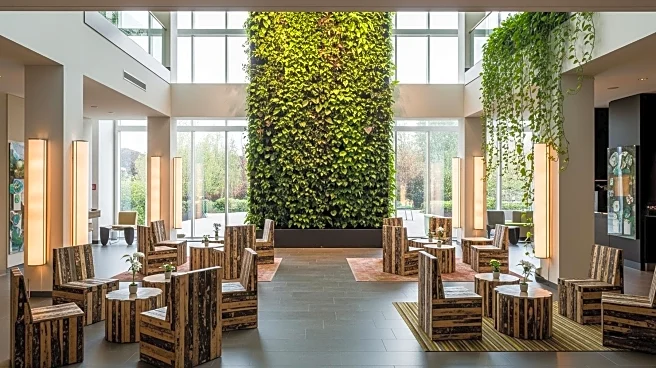What's Happening?
The luxury hotel industry is increasingly integrating sustainability into its brand narrative, driven by a shift in tourist preferences towards environmentally and socially responsible experiences. Since the health crisis of 2020, sustainability has become a crucial element in the hospitality sector, particularly in luxury hotels where service is complemented by image and symbolic projection. This shift is not merely about reducing energy consumption or optimizing resource management; it is about redefining luxury itself to align with personal values of environmental and social responsibility. The industry faces challenges such as greenwashing, where superficial sustainability claims are made without tangible impact. To counter this, luxury hotels are moving from storytelling to story-doing, implementing practices like responsible architectural design, local sourcing for gastronomy, and intelligent resource management systems.
Why It's Important?
This development is significant as it reflects a broader cultural shift in consumer expectations, particularly among high-income tourists who now prioritize sustainability alongside traditional luxury offerings. The move towards genuine sustainability practices can enhance brand credibility and attract a growing segment of informed consumers who value transparency and authenticity. For the U.S. hospitality industry, this trend could lead to increased competitiveness and differentiation in a crowded market. Hotels that fail to adapt may lose market share to those that successfully integrate sustainability into their core operations, potentially impacting revenue and reputation.
What's Next?
Luxury hotels are expected to continue evolving their sustainability narratives, focusing on tangible practices that guests can experience directly. This includes further integration of local cultural heritage and community engagement programs. As consumer awareness grows, hotels will need to ensure their sustainability claims are backed by rigorous certifications and transparent metrics. The industry may see increased scrutiny from consumers and watchdog organizations, pushing hotels to adopt more comprehensive and verifiable sustainability initiatives.
Beyond the Headlines
The shift towards sustainability in luxury hospitality could have long-term implications for the industry, including changes in marketing strategies and operational practices. Ethical considerations will become central to brand identity, potentially influencing hiring practices, partnerships, and investment decisions. This evolution may also inspire other sectors to adopt similar approaches, contributing to broader societal changes in how businesses operate and engage with environmental and social issues.










